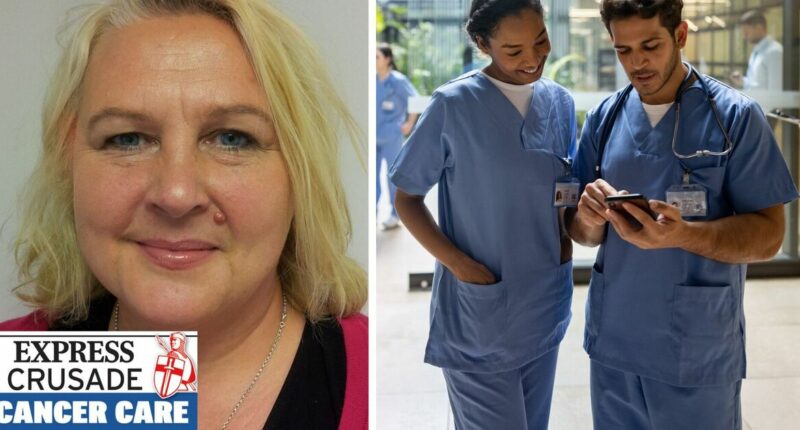Share this @internewscast.com
When discussions about prostate cancer arise, the focus is often on medical interventions such as surgeries, radiotherapy, hormone treatments, and tracking prostate-specific antigen (PSA) levels. Unfortunately, the conversation seldom gives equal weight to the emotional repercussions: the grief, the anxiety, and the sense of isolation that many men encounter. It is within this less visible sphere of mental health that many find their toughest battles. The effects of these struggles are profound, with recent studies indicating that men diagnosed with prostate cancer have a suicide rate over four times higher than that of the general male populace.
Each number in this statistic represents real individuals—fathers, brothers, partners—grappling not only with the cancer’s physical demands but also with its deep psychological impacts. At Tackle Prostate Cancer, a UK-wide charity comprising over 150 autonomous support groups, we’ve dedicated years to understanding the personal stories behind these figures.
Our findings reveal that for numerous men, a prostate cancer diagnosis is not just a medical ordeal but a significant psychological upheaval. It challenges their perceptions of masculinity, their future aspirations, their intimate relationships, and their roles within the family and workplace.
Having worked with various cancer charities such as Macmillan, Prostate Cancer UK (PCUK), and the British Lung Foundation for more than twenty years, it wasn’t until I joined Tackle that I truly witnessed the understated courage of men who support each other. They do this not through empty reassurances but through candid conversations and shared experiences.
I’ve participated in gatherings in community centers, function rooms, and virtual Zoom meetings where men openly discuss their darkest moments, post-treatment depression, feelings of being “written off,” and the shame associated with issues like incontinence or erectile dysfunction. Yet, amid these discussions, I have also witnessed a powerful sense of hope.
One group member expressed this sentiment poignantly, saying, “I can’t imagine where I would be without the support group. After my treatment, I found myself in a very dark place—angry, withdrawn, and struggling with sleeplessness.”
“Then someone gave me a leaflet and said, ‘Give them a call.’ I walked into that first meeting thinking I’d say nothing. But I listened. And slowly, I spoke. And I haven’t looked back.”
At Tackle, we don’t believe in passive sympathy. We believe in active solidarity. That’s why our core work revolves around strengthening peer support across the country.
Whether it’s a man in Devon walking through the door of a support group for the first time, scared and overwhelmed, or a black support group leader in London guiding newly diagnosed men through culturally nuanced fears, we are building a movement that says: “You are not alone. Your story matters.”
Peer support isn’t just comforting, it’s clinically significant. It can be lifesaving. And yet, so many men are conditioned to “just get on with it”, often seeing vulnerability as weakness.
That’s why our Movember-funded project is so important. It’s called Make Sense of It: Treatment Decision Support for Prostate Cancer, and it goes a step beyond general support. It trains volunteers with lived experience of prostate cancer to coach other men, especially in those fragile weeks just after diagnosis.
They’re not counsellors. They’re not clinicians. But they are equals. They are listeners. And in a system that can sometimes feel rushed or impersonal, they are the pause, the breath, the space to be fully heard.
Of course, prostate cancer doesn’t just affect the person with the diagnosis. It profoundly impacts families, especially partners.
In recent months, I’ve also experienced this personally, as my own husband was diagnosed with an aggressive cancer. Suddenly, I wasn’t just a professional advocating for better support, I was a partner, a carer, someone watching the man I love face fear and pain on a scale I never imagined.
And I’ve been honest about this: it’s been overwhelming. Even with all my knowledge and all my networks, I found myself exhausted, unsure, and tearful at times. What’s helped me most is what we advocate for every day at Tackle: connection.
Friends who understand. Quiet, meaningful moments. A safe space to be vulnerable. And above all, the reminder that none of us can do this alone.
One man’s partner recently told us: “When he was diagnosed, I became nurse, counsellor, chauffeur, and emotional punchbag.
“It was lonely. But when I joined a local meeting, I realised I wasn’t the only one feeling that way. I met other partners who just got it. I could exhale for the first time in months.”
It’s a sentiment I now feel in my bones. As a carer, your world narrows. The future feels shaky. And yet, there is strength in being seen.
That’s why we’re working hard to ensure Tackle’s support extends to partners and families, because they need it too.
It’s time to change the script. Strength isn’t about silence. It’s about survival, and that includes mental survival. A man who cries in frustration or fear isn’t weak. He’s human. And when he connects with someone who truly understands, something powerful happens: resilience is born.
That statistic, four times more likely to die by suicide, should be a wake-up call to all of us. Not just to speak, but to listen.
And to keep building the kind of spaces where vulnerability is met with empathy, not embarrassment. We’re proud to stand beside men and their loved ones and partners at every stage, from shock to recovery, from surgery to laughter.
At Tackle, we’ll keep championing their voices, growing our support groups, training peer coaches, and helping people rewrite what it means to cope with cancer.
This is why we are backing the Daily Express’s Cancer Care campaign, to ensure all cancer patients have access to mental health support both during and after treatment.













